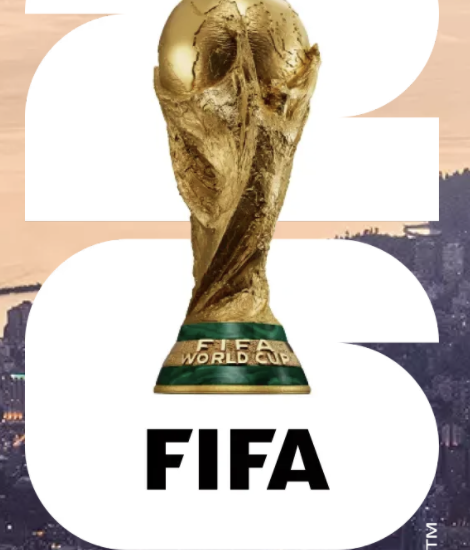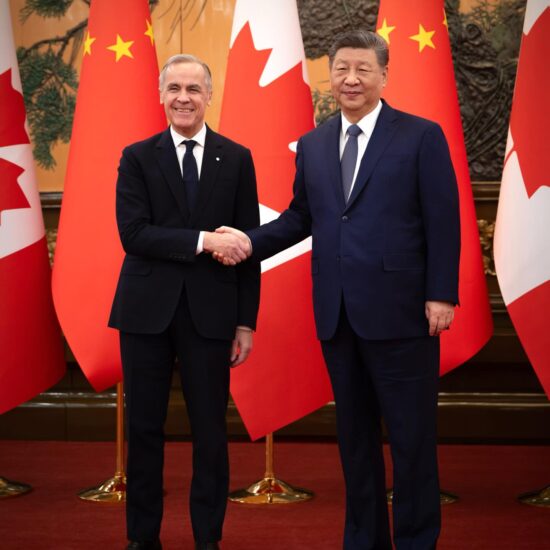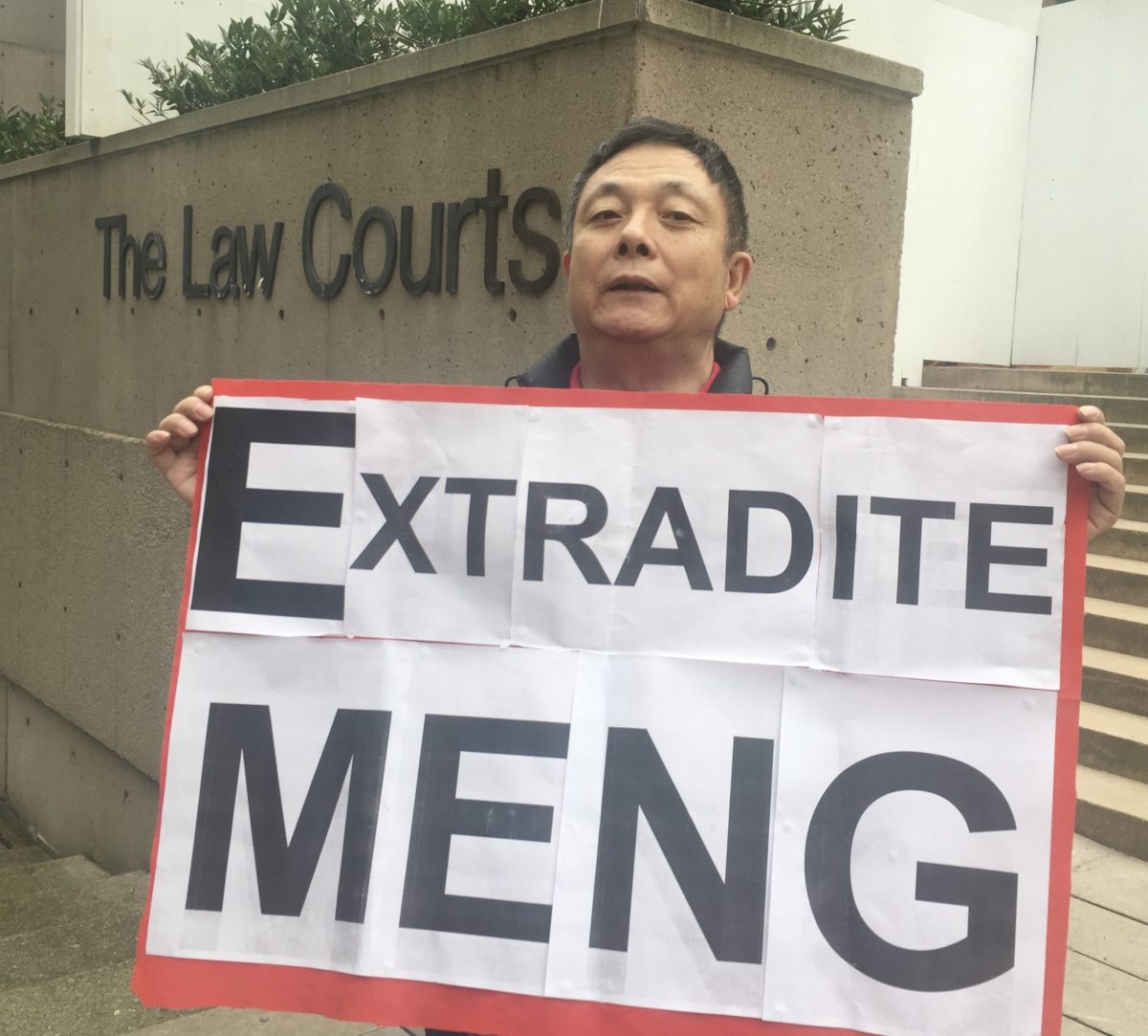
Bob Mackin
Another episode in the Meng Wanzhou circus on March 6.
The Huawei Technologies chief financial officer’s latest appearance in Vancouver’s Law Courts was supposed to be for scheduling the hearing to determine whether she would be extradited to face fraud and money laundering charges in New York.
The case was put over to May 8 so that her expanded team of defence lawyers can prepare applications and seek information under the federal access to information law about her arrest and detention on Dec. 1 at Vancouver International Airport. Meng had arrived from Hong Kong, but never made her flight to Mexico, because Canadian officials executed an arrest warrant under a treaty with the United States.
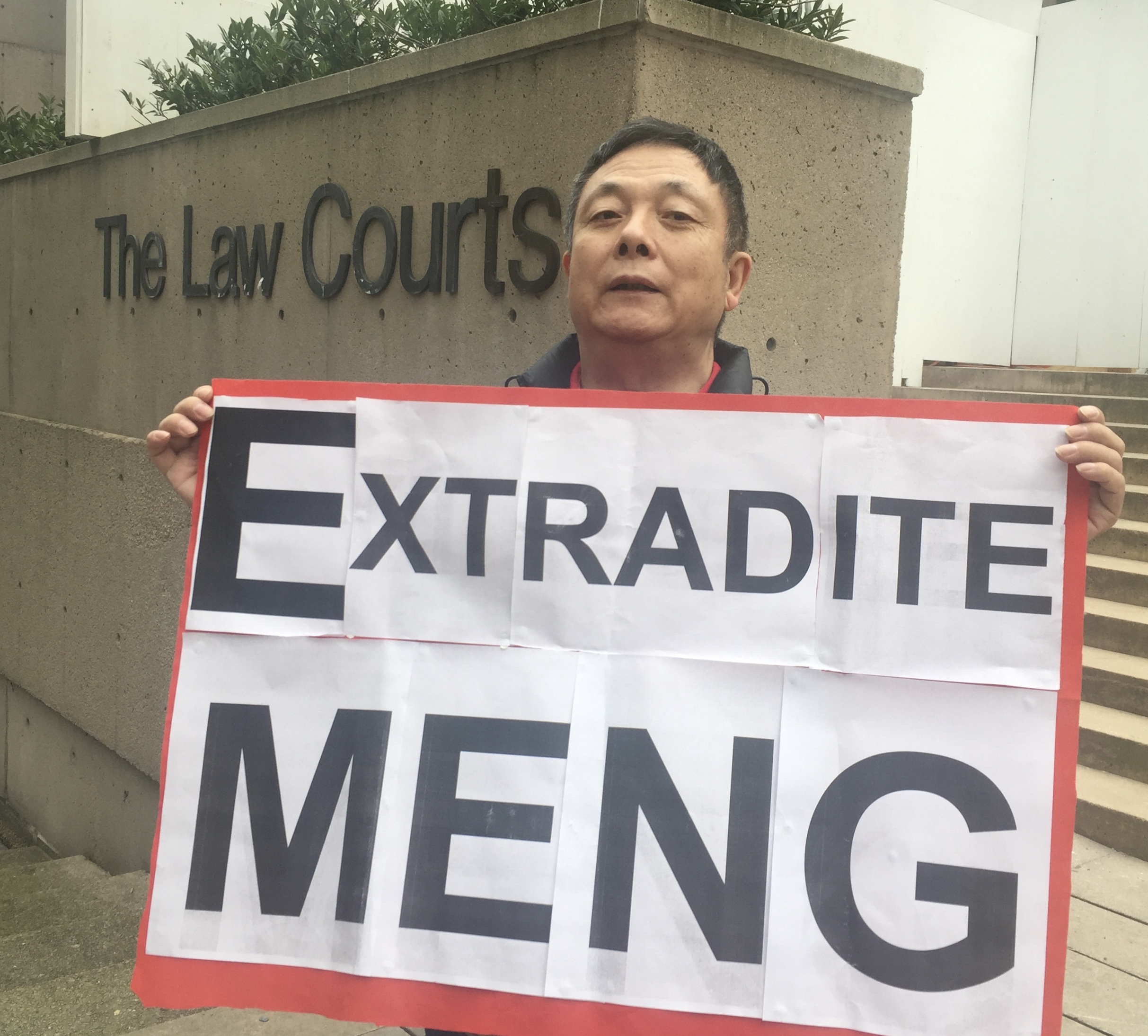
Max Wang protested outside Meng Wanzhou’s March 6 court date (Mackin)
Meng’s lawyer Richard Peck of Peck and Co. told Justice Heather Holmes, the Associate Chief Justice of the B.C. Supreme Court, that it is a rare, dense and complex case. Particularly because of comments made last December by U.S. President Donald Trump, who said that it is “possible [Meng’s case] will be a part of [trade] negotiations.”
Said Peck to the court: “There are serious concerns of a legal and factual nature… concerns not common in the extradition jurisprudence. There are concerns about political characters, political motivation, comments by the U.S. president.”
He said that time is required to “properly identify, isolate and develop these issues before the court.”
The hearing was five days after Meng sued the Canada Border Services Agency and Royal Canadian Mounted Police, alleging unconstitutional arrest, detention and seizure of her mobile devices. Her lawyers from the Gudmundseth Mickelson firm in Vancouver took advantage of a slow news day on March 4, and released the documents to media. The statement of claim was not yet available in the B.C. courts online registry. The actual registry was naturally closed for the weekend.
In an affidavit filed during her December bail hearing, Meng did not allege that her rights had been violated. She swore that she had to be taken to Richmond Hospital after being detained at the airport because she suffers from hypertension. Her father, Huawei founder Ren Zhengfei, had complimented Canadian authorities for their treatment of his daughter when he held rare interviews with foreign reporters in January.
The Huawei global public relations offensive includes a new social media advertising campaign and junkets offered to journalists to visit the company’s Shenzhen headquarters. Another salvo was fired less than 12 hours after Meng’s court appearance. The company held a webcast news conference in Shenzhen to announce it had filed a lawsuit in Plano, Texas, in a bid to overturn the U.S. government’s ban on Huawei equipment. The U.S. government is part of the Five Eyes intelligence alliance that calls Huawei a threat to national security.
Daniel Coles, a lawyer for several national and international media companies, appeared before Holmes, seeking a judicial order for Meng’s lawyers and the federal Crown to notify media outlets of appearances and applications. Coles’s motion failed.
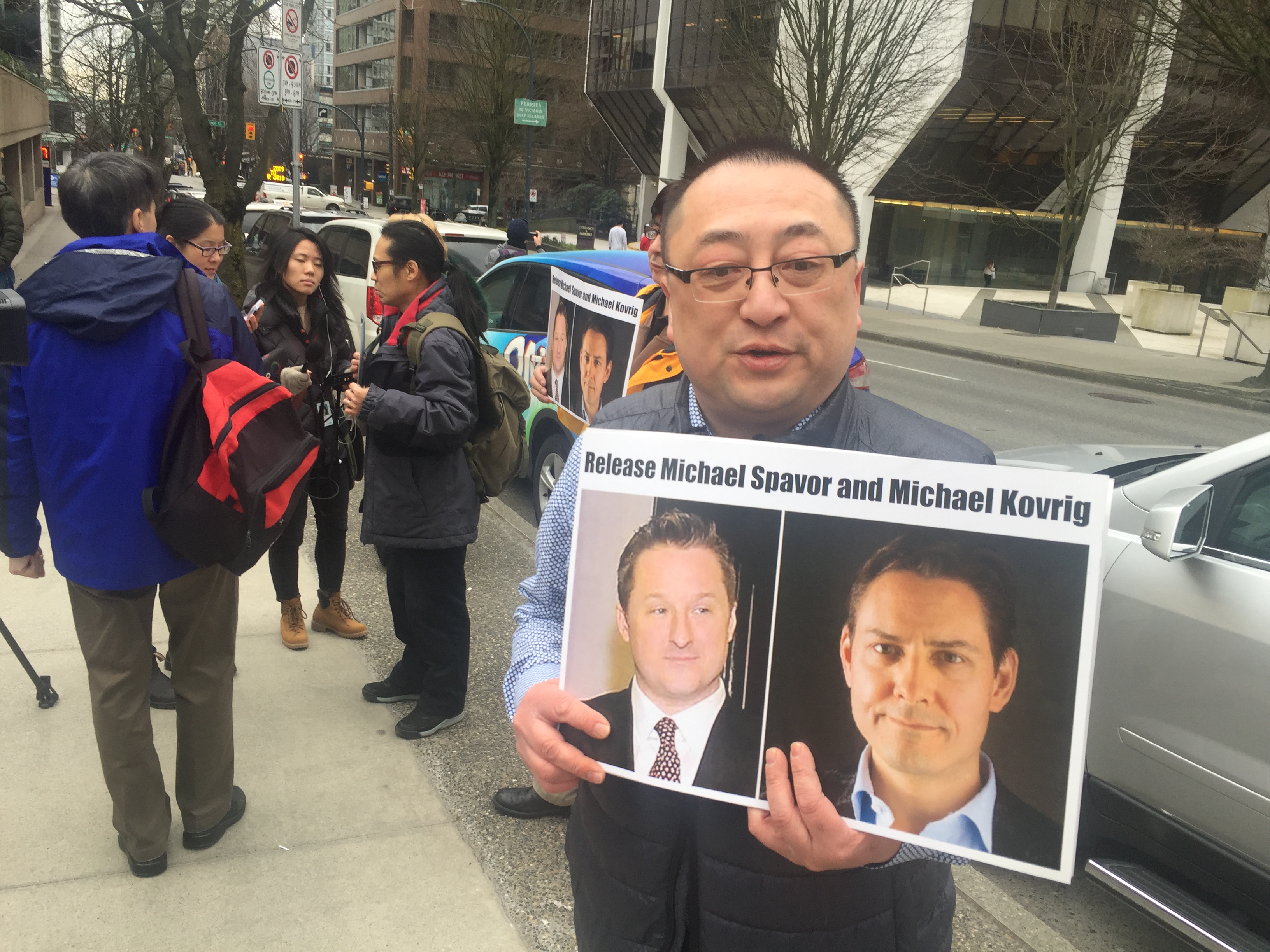
Louis Huang protested outside Meng Wanzhou’s March 6 court date (Mackin)
“Apparently there is some public interest,” deadpanned Meng’s lawyer David J. Martin of Martin and Associates. He called Coles “very diligent in representing the fifth (sic) estate.”
Holmes said she would “see how things go.”
Meng arrived for the short appearance in a black sport utility vehicle and was escorted to courtroom 55 by court sheriffs and members of her private security company, Lions Gate Risk Management Group. She wore a floppy purple hat, purple Teenie Weenie Bear sweatshirt, black yoga pants and a backpack with a stuffed doll attached. She looked more like a foreign student than the chief financial officer of one of the world’s biggest companies that is crucial to China’s strategy to overtake the U.S. as the world’s biggest economy and most-powerful nation.
Meng’s husband Liu Xiaozong arrived with less fanfare, wearing new running shoes and a Fila sweatshirt and pants. He spoke with staff from the People’s Republic of China consulate, who were also casually dressed.
Outside, the pro-China, pro-Huawei protesters from December were nowhere to be seen. Instead, local human rights and democracy activists caught the eye of reporters. One of them even burned the People’s Republic of China flag.
Max Wang carried signs urging a boycott of Huawei and extradition of Meng. He even called her a spy for the Chinese Communist Party. Louis Huang held photographs of diplomat Michael Kovrig and businessman Michael Spavor, the two Canadians that China jailed in retaliation for Meng’s arrest.
“We are not worried at all about the rights of Ms. Meng, her rights can be fully protected and respected in our legal system, but we’re really concerned about these two Canadians,” Huang said.
“I will ask our Prime Minister and Foreign Minister to really focus on these two people, they are suffering right now in China. I’m coming from china, I know what happens, in the court, in the Chinese legal system, there are absolutely no human rights. They can do anything, they can torture you, they can beat you.”
Meng was released on $10 million bail and curfew conditions Dec. 11. She lives in a $5 million house in Dunbar that is in her husband’s name. They are renovating a $14 million mansion in Shaughnessy, on the same block as the residence of the U.S. consul general.
Support theBreaker.news for as low as $2 a month on Patreon. Find out how. Click here.









